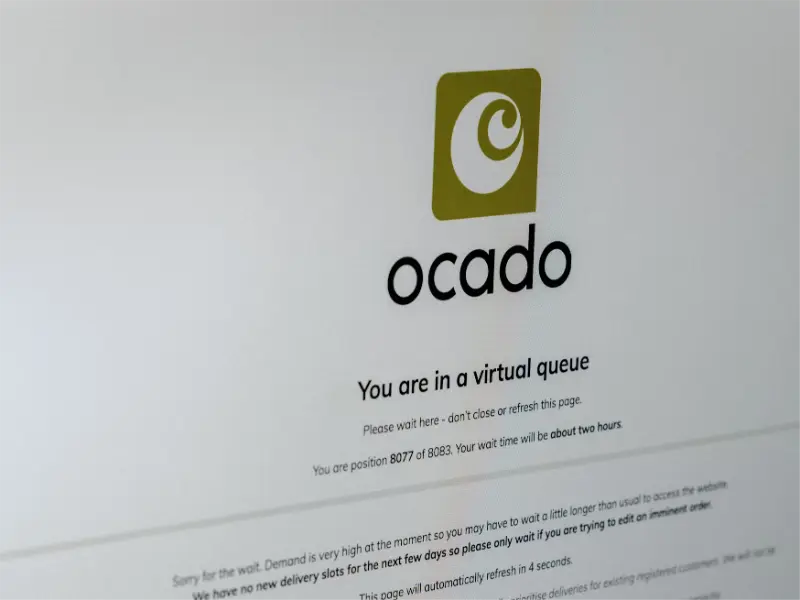- Ocado expects a big increase in cash flow to $194 million, despite delays and concerns from analysts.
- A slowdown in warehouse expansion and a broken exclusivity deal with Sobeys are major setbacks for Ocado’s growth.
OUR TAKE
Ocado Group, a pioneer in robotic warehouse technology for grocery retailers, forecasts an improvement in cash flow to $194 million despite slower adoption by key customers such as Kroger and Sobeys. The company’s technology division expects higher margins, although its share price has fallen on concerns about project delays and liquidity. Despite a pre-tax loss of $200 million in the first half, Ocado remains optimistic, driven by CEO Tim Steiner’s ambition to make Ocado the “Tesla of grocery”. While ambitious, its significant investment has potential to revolutionise food retailing.
—Heidi Luo, BTW reporter
What happened
Ocado Group, a British company specialising in robotic warehouse technology for grocery retailers, is forecasting an improvement in its cash flow to $194 million, up from a previous estimate of $129 million. This upbeat forecast comes amid challenges, including slower adoption of its automated warehouse technology by major customers such as Kroger and Sobeys.
Despite these hurdles, Ocado’s technology division is expected to deliver slightly higher profit margins than originally expected. However, these updates were followed by a fall in Ocado’s share price after a long-supportive analyst suggested that the company needed to ‘seriously consider its options’ due to project delays and liquidity issues.
The majority of Ocado’s revenue continues to come from its online grocery partnership with Marks & Spencer Group in the UK, known as Ocado Retail. Notably, the company reported a pre-tax loss of $200 million for the first half of the year, which was still better than analysts had expected.
Also read: Ocado and Aeon to build third robotic warehouse in Japan
Also read: Transforming industry: The undeniable benefits of automation
Why it’s important
The company, originally founded by three former Goldman Sachs bankers, has seen its share value plummet following significant operational challenges. The slowdown in the roll-out of new warehouses by key partners such as Kroger in the US and Sobeys in Canada underlines the difficulties of scaling such innovative technologies internationally.
In addition, Sobeys recently halted the roll-out of a new automated facility in Vancouver, which was due to be operational next year, and ended its exclusivity agreement with Ocado, which dealt a significant blow to Ocado’s expansion plans. This is compounded by Ocado’s struggles in other markets, such as Australia with Coles Group Limited, suggesting wider operational challenges.
Despite these setbacks, Ocado remains committed to improving its technology offering. CEO Tim Steiner’s vision to position Ocado as the “Tesla of grocery” continues to guide the company’s strategic initiatives.

